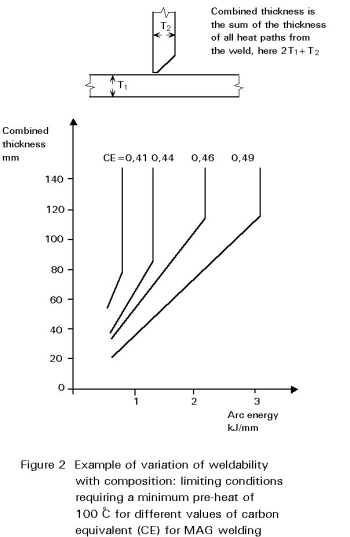Carbon Equivalent.xls

Description
The equivalent carbon content of a steel alloy refers to method of measuring the maximum hardness and the weldability of the alloy based on the chemical composition of the alloy. Higher concentrations of carbon and other alloying elements such as manganese, chromium, silicon, molybdenum, vanadium, copper, and nickel tend to increase the hardness and decrease the weldability of the material. Each of these materials tends to influence the hardness and weldability of the steel to different magnitudes, however, making a method of comparison necessary to judge the difference in hardness between two alloys made of different alloying elements. The resulting equivalent carbon coefficient allows the alloy to be categorized alongside plain carbon steels, and have their weldability and hardness properties compared with them.
Calculation Reference
Lincoln Electric (1994). The Procedure Handbook of Arc Welding. Cleveland: Lincoln Electric. ISBN 99949-25-82-2. (Page 3.3-3)
Weman, Klas (2003). Welding processes handbook. New York: CRC Press LLC. ISBN 0-8493-1773-8.
Calculation Preview
Full download access to any calculation is available to users with a paid or awarded subscription (XLC Pro).
Subscriptions are free to contributors to the site, alternatively they can be purchased.
Click here for information on subscriptions.

